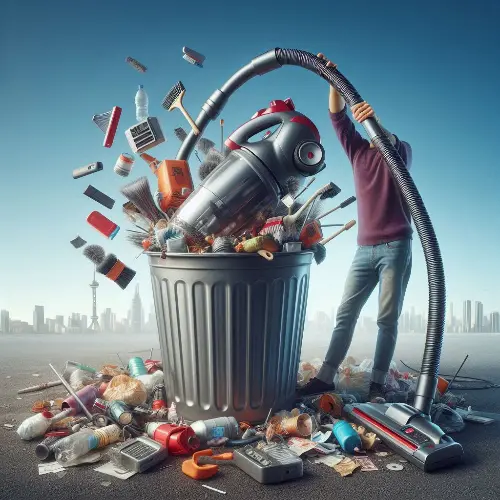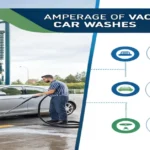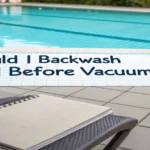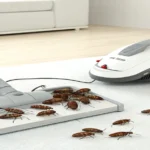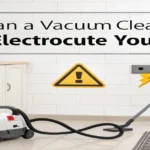Can You Throw a Vacuum Cleaner in the Trash?
Are you wondering if you can just throw your old vacuum cleaner in the trash? Getting rid of an old vacuum doesn’t have to be a complicated, but there are some important factors to consider when it comes to vacuum cleaner disposal.
This article will walk you through the frequently asked questions about recycling or disposing of a vacuum cleaner so you can make an informed decision.
What are the parts of a vacuum cleaner that need special disposal?
Vacuum cleaners contain a mix of materials, some of which require special handling. Here’s a quick rundown of what’s inside a typical vacuum:
- Motor – The motor contains copper wiring as well as lubricating oils and grease. These components make the motor unsuitable for regular trash.
- Plastic body – The main body is made of plastic polymers which are recyclable.
- Metal components – Screws, bolts, and the handle contain recyclable metals.
- Wiring and electrical components – These contain copper and other metals as well as coatings that categorize them as e-waste.
- Dust bag – The dust bag contains everything the vacuum has picked up. This can include dirt, dust, debris, and even glass or metal shards. The dust bag should not be placed in the regular trash.
So in summary, the motor, wiring, and dust bag require special disposal, while the plastic and metals can potentially be recycled.
Is it bad to throw away a vacuum cleaner?
Simply tossing your old vacuum into the regular trash is not the ideal disposal method. While it may seem like the convenient option, there are a few reasons why throwing a vacuum cleaner in the garbage is bad for the environment:
- It wastes all the raw materials and resources that went into manufacturing the vacuum originally. Recycling allows these materials to be reused.
- Many vacuum components, like the motor and batteries, contain hazardous materials. Putting them directly into a landfill risks contaminating soil and groundwater.
- Vacuums contain recyclable metals that are needlessly lost when buried in a landfill rather than being recycled.
- Plastics and other materials release methane and other greenhouse gases as they slowly decompose in a landfill. Recycling reduces landfill contributions to global warming.
The bottom line is disposing of a vacuum cleaner properly keeps toxic chemicals out of the environment and conserves resources by enabling recycling.
Can you recycle vacuum cleaners?
The good news is – yes, you can recycle vacuum cleaners! While you can’t just toss your old vacuum in with your household recycling, many options exist for vacuum cleaner recycling:
- Manufacturer take-back programs – Many vacuum brands like Dyson allow you to mail back your old vacuum to have it recycled properly.
- Retailer take-back – Stores like Best Buy accept old vacuums. Call ahead to ask if they recycle vacuums.
- Scrap yards – Scrap yards take appliances and separate valuable metals and other materials that can be recycled.
- E-waste recycling centers – These specialized centers accept electronics and household appliances for recycling.
- Junk removal services – Many junk haulers partner with recycling centers to properly dispose of vacuums.
When bringing your vacuum to a recycling center, be prepared to drop off the whole machine – don’t try to remove parts yourself. The experts have the tools needed to fully dismantle and recycle vacuums.
What should you do with a vacuum that still works?
If your old vacuum cleaner is still functioning properly, consider giving it a new life rather than sending it straight to a recycling center. Here are some eco-friendly ideas for rehoming working vacuums:
- Sell it – List your vacuum on Craigslist, Facebook Marketplace, or a garage sale site. Someone may want it as a backup or replacement vacuum.
- Donate it – Charities like Goodwill and the Salvation Army accept used vacuums to resell or use in their facilities.
- Give to friends or family – Offer your working vacuum to people you know who could use an extra one for their home or office.
- Trade it in – Some vacuum retailers offer trade-in discounts toward a new vacuum when you turn in your old one.
Repurposing a functioning vacuum keeps it out of a landfill a little longer and gets more use out of the materials and energy invested in it already. Only recycle vacuums that are truly ready for retirement.
Can you put a vacuum cleaner in the regular trash?
Technically you can put a vacuum cleaner out with the trash destined for the landfill, but this should be a last resort. As mentioned earlier, vacuum cleaners contain hazardous components that can contaminate the environment.
If your municipality or waste provider specifically prohibits electronic waste from your regular trash pickup, putting a vacuum cleaner on the curb could get you in trouble. Many areas have laws against disposing of e-waste improperly.
Before resigning your old vacuum to the dumpster, check for recycling options in your community. Call your local waste management department, or search online for vacuum recycling centers near you. With a little effort, you can keep that worn-out appliance out of the landfill.
FAQs
How do I dispose of a vacuum with lithium-ion batteries?
Lithium-ion batteries can be dangerous in landfills, so they need to be removed and taken to a battery recycling location. Some retailers and manufacturers provide lithium battery recycling programs.
What should I do if my vacuum cleaner is leaking or hazardous fluids?
Do not place a vacuum leaking oils or other hazardous substances in the regular trash. Contact your local household hazardous waste program for proper disposal instructions. Leaking appliances often cannot be accepted for recycling.
Can I take apart the vacuum and recycle the components separately?
It’s best to recycle the whole vacuum at an e-waste facility and let the experts dismantle it. Attempting to remove wires or batteries yourself can be dangerous if not done properly.
How much does it cost to recycle a vacuum cleaner?
Costs vary but are often free or very inexpensive. For example, Best Buy charges $25 per appliance. Scrap yards sometimes pay a small amount for the recovered metal. Compare options in your area.
What’s the best way to transport an old vacuum to a recycling center?
Place the vacuum in a sturdy bag or box secured with tape to prevent any parts from falling out. Remove the dust bag/canister first and dispose of it properly. Transport in a truck bed or SUV if possible.
Can I put a stick or robot vacuum in the regular trash?
While smaller, these vacuums contain lithium-ion batteries, motors, and wiring that still require special handling. Take advantage of retailer take-back programs if available.
What about donating a very old vacuum that no longer works well?
It’s best not to donate vacuums that are no longer functioning optimally. Recycling very old models reduces the risk of unwanted materials ending up in a landfill down the line.
How do I find the closest vacuum recycling location near me?
Search online for “vacuum recycling near me” or “electronics recycling near me.” You can also contact your local waste management authority or recycling coordinator.
Key Takeaways on Vacuum Cleaner Disposal
- Vacuums contain materials requiring special handling like motors, wiring, dust bags, and batteries.
- Simply throwing away a vacuum is bad for the environment and wastes raw materials.
- Many recycling options exist, including take-back programs, retailers, scrap yards, and e-waste centers.
- If it still works, consider reselling or donating your old vacuum before recycling it.
- Only use the trash as a last resort, and check local laws on vacuum and electronics disposal.
With some smart planning, you can easily find an eco-friendly way to say goodbye to your worn-out vacuum cleaner. Recycling keeps hazardous components out of landfills and gives the materials in your vacuum a chance to be reused.

Hey, I’m Abdul Manan, a vacuum enthusiast with a knack for simplifying cleaning. I love sharing tips, tricks, and insights to help you get the most out of your vacuum. Let’s tackle cleaning the smart way!
